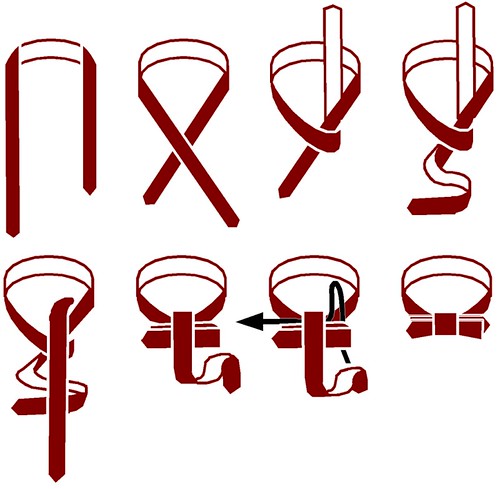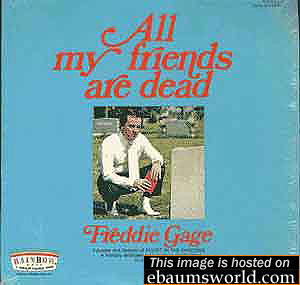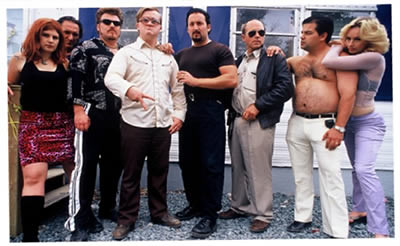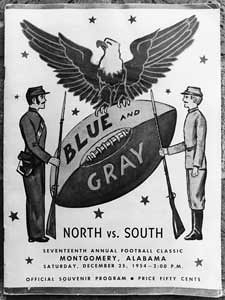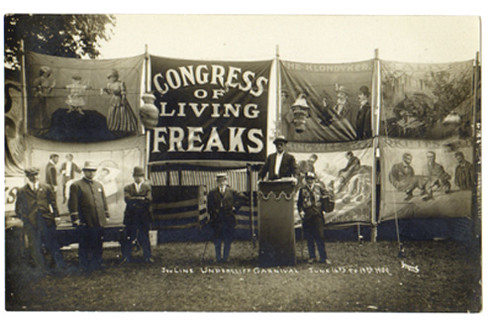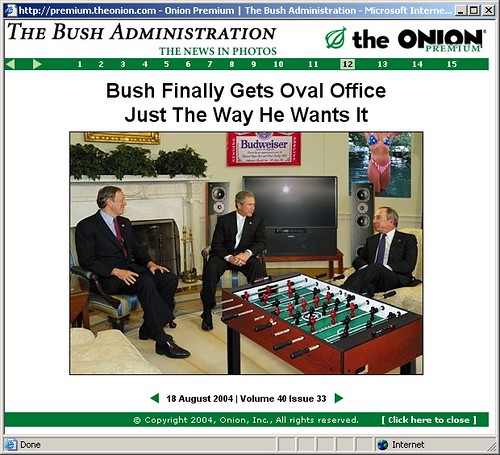New Files Show FBI Watched Domestic Activist Groups
WASHINGTON (Dec. 20) - Counterterrorism agents at the Federal Bureau of Investigation have conducted numerous surveillance and intelligence-gathering operations that involved, at least indirectly, groups active in causes as diverse as the environment, animal cruelty and poverty relief, newly disclosed agency records show.
F.B.I. officials said Monday that their investigators had no interest in monitoring political or social activities and that any investigations that touched on advocacy groups were driven by evidence of criminal or violent activity at public protests and in other settings.
After the attacks of Sept. 11, 2001, John Ashcroft, who was then attorney general, loosened restrictions on the F.B.I.'s investigative powers, giving the bureau greater ability to visit and monitor Web sites, mosques and other public entities in developing terrorism leads. The bureau has used that authority to investigate not only groups with suspected ties to foreign terrorists, but also protest groups suspected of having links to violent or disruptive activities.
But the documents, coming after the Bush administration's confirmation that President Bush had authorized some spying without warrants in fighting terrorism, prompted charges from civil rights advocates that the government had improperly blurred the line between terrorism and acts of civil disobedience and lawful protest.
One F.B.I. document indicates that agents in
Indianapolis planned to conduct surveillance as part of a
"Vegan Community Project." Another document talks of the
Catholic Workers group's "semi-communistic ideology." A third indicates the bureau's interest in determining the location of a protest over llama fur planned by
People for the Ethical Treatment of Animals.
The documents, provided to The New York Times over the past week, came as part of a series of Freedom of Information Act lawsuits brought by the American Civil Liberties Union. For more than a year, the A.C.L.U. has been seeking access to information in F.B.I. files on about 150 protest and social groups that it says may have been improperly monitored.
The F.B.I. had previously turned over a small number of documents on antiwar groups, showing the agency's interest in investigating possible anarchist or violent links in connection with antiwar protests and demonstrations in advance of the 2004 political conventions. And earlier this month, the A.C.L.U.'s Colorado chapter released similar documents involving, among other things, people protesting logging practices at a lumber industry gathering in 2002.
The latest batch of documents, parts of which the A.C.L.U. plans to release publicly on Tuesday, totals more than 2,300 pages and centers on references in internal files to a handful of groups, including
PETA, the environmental group
Greenpeace and the
Catholic Workers group, which promotes antipoverty efforts and social causes.
Many of the investigative documents turned over by the bureau are heavily edited, making it difficult or impossible to determine the full context of the references and why the F.B.I. may have been discussing events like a PETA protest. F.B.I. officials say many of the references may be much more benign than they seem to civil rights advocates, adding that the documents offer an incomplete and sometimes misleading snapshot of the bureau's activities.
"Just being referenced in an F.B.I. file is not tantamount to being the subject of an investigation," said John Miller, a spokesman for the bureau.
"The F.B.I. does not target individuals or organizations for investigation based on their political beliefs," Mr. Miller said. "Everything we do is carefully promulgated by federal law, Justice Department guidelines and the F.B.I.'s own rules."
A.C.L.U officials said the latest batch of documents released by the F.B.I. indicated the agency's interest in a broader array of activist and protest groups than they had previously thought. In light of other recent disclosures about domestic surveillance activities by the National Security Agency and military intelligence units, the A.C.L.U. said the documents reflected a pattern of overreaching by the Bush administration.
"It's clear that this administration has engaged every possible agency, from the Pentagon to N.S.A. to the F.B.I., to engage in spying on Americans," said Ann Beeson, associate legal director for the A.C.L.U.
"You look at these documents," Ms. Beeson said, "and you think, wow, we have really returned to the days of J. Edgar Hoover, when you see in F.B.I. files that they're talking about a group like the Catholic Workers league as having a communist ideology."
The documents indicate that in some cases, the F.B.I. has used employees, interns and other confidential informants within groups like PETA and Greenpeace to develop leads on potential criminal activity and has downloaded material from the groups' Web sites, in addition to monitoring their protests.
In the case of Greenpeace, which is known for highly publicized acts of civil disobedience like the boarding of cargo ships to unfurl protest banners, the files indicate that the F.B.I. investigated possible financial ties between its members and militant groups like the Earth Liberation Front and the Animal Liberation Front.
These networks, which have no declared leaders and are only loosely organized, have been described by the F.B.I. in Congressional testimony as "extremist special interest groups" whose cells engage in violent or other illegal acts, making them "a serious domestic terrorist threat."
In testimony last year, John E. Lewis, deputy assistant director of the counterterrorism division, said the F.B.I. estimated that in the past 10 years such groups had engaged in more than 1,000 criminal acts causing more than $100 million in damage.
When the F.B.I. investigates evidence of possible violence or criminal disruptions at protests and other events, those investigations are routinely handled by agents within the bureau's counterterrorism division.
But the groups mentioned in the newly disclosed F.B.I. files questioned both the propriety of characterizing such investigations as related to "terrorism" and the necessity of diverting counterterrorism personnel from more pressing investigations.
"The fact that we're even mentioned in the F.B.I. files in connection with terrorism is really troubling," said Tom Wetterer, general counsel for Greenpeace. "There's no property damage or physical injury caused in our activities, and under any definition of terrorism, we'd take issue with that."
Jeff Kerr, general counsel for PETA, rejected the suggestion in some F.B.I. files that the animal rights group had financial ties to militant groups, and said he, too, was troubled by his group's inclusion in the files.
"It's shocking and it's outrageous," Mr. Kerr said. "And to me, it's an abuse of power by the F.B.I. when groups like Greenpeace and PETA are basically being punished for their social activism."
FBI Goes After Bonsaikitten.com
WASHINGTON -- A website devoted to squishing kittens into Mason jars is one of two things: A trenchant parody designed to provoke, or a nefarious kitty-mutilation scheme that must be stopped, and probably outlawed.
Count the FBI among the many visitors to
bonsaikitten.com who are anything but amused at the descriptions of how to use muscle relaxant, feeding tubes and Klein bottles to shape a perfect Bonsai Cat.
FBI agents in the Boston field office have launched an investigation into the site. They also have served MIT with a grand jury subpoena asking for "any and all subscriber information" about the site, which was initially hosted in a campus dormitory but has since moved to a commercial provider.
MIT said in a letter to bonsaikitten.com's pseudonymous webmaster, a graduate student using the alias Dr. Michael Wong Chang, that it will wait until Sunday to turn over records that would identify him by name. "I was surprised," Chang said. "I really thought that the FBI had better things to do. That's your tax dollars at work."
Bonsaikitten.com is, of course, a joke devised by prankster MIT students -- who else would talk about "rectilinear kittens?" -- to provoke owners of kittens, an adorably fuzzy topic that's usually beyond parody. Bonsaikitten.com
offers to sell visitors a custom-shaped kitten -- the site says "typical wait time for a fully shaped Bonsai Kitten is 3 to 4 months" -- but the site does not list prices or a mailing address for where to send money orders. It does, however, occasionally receive requests for more information.
It also has sparked tens of thousands of hate-mail messages, anti-Bonsai Kitten groups on Yahoo, and even
a blistering denunciation from the venerable
Humane Society of the United States.
For the site's fans, watching e-mail nastygrams arrive has become a kind of spectator sport: There's even a mailing list that lets bonsaikitten.com aficionados view any mail sent to the site's webmaster. A typical message: "This site is horrible! You should go in a mental hospital! You son of a bitch! I'll do my best to shut down this site and your disgusting hobby!"
A gun-toting investigator from the
Massachusetts Society for the Prevention of Cruelty to Animals reportedly stopped by campus and quizzed MIT network administrators about the intent of the site. Under state law, MSPCA investigators
are deputized as "special state police officers" with investigation and arrest abilities. The combined efforts of animal rights proponents, including such ardent activists as the closed-subscription "
meowmies" group, seem to have prompted the FBI to launch its investigation.
"Why are they doing this?" asks Harvey Silverglate, a prominent Boston criminal defense attorney. "I think the answer is that political correctness has infected the FBI."
"The kind of fanatical end of the spectrum animal protection movement has affected them," says Silverglate, a partner at
Silverglate and Good. "They want to be the good guys. They massively run rampant over Americans' liberties but they want to be seen as nice fuzzy guys who want to protect kittens." Silverglate predicts that when the FBI realizes bonsaikitten.com is not serious, the bureau will quietly abandon its investigation.
Ellen Kearns, an FBI agent in the bureau's Lakeville, Massachusetts office who is involved in the investigation, could not be reached for comment. Nadine Pellegrini, the assistant U.S. Attorney who signed the subpoena, refused to discuss the investigation. "I'm making no comment," Pellegrini said. The subpoena does not discuss what law the bonsaikitten.com operators allegedly violated. But Pellegrini hinted that it was based on a relatively recent federal statute: "I would assume there's a case, if there's a law, but I'm not making any comment."
In December 1999, President Clinton signed
a law that makes it a federal felony to possess "a depiction of animal cruelty" with the intent to distribute across state lines -- such as on the Internet. During a floor debate, Rep. Elton Gallegly (R-Calif.) claimed that "sick criminals are taking advantage of the loopholes in the local law and the lack of federal law on animal cruelty videos." The law, which observers at the time said probably violated the First Amendment, only applies to images, videos, and sound recordings that are distributed "for commercial gain" -- and bonsaikitten.com's tongue-in-cheek descriptions of mail-order cats in bottles appears to have given the FBI sufficient justification for an investigation. The national Humane Society, based in Washington, applauded the FBI's efforts.
"If the FBI is looking into this, that's great," said spokeswoman Karen Allanach. "Anything to discourage animal cruelty would be very helpful. Allanach said she's not sure if the site is a parody -- and even if it isn't, it should be taken offline because it could encourage people to experiment on their own household pets. It's totally promoting animal cruelty," Allanach said. "They consider it a sick joke. People will take it seriously. Animal cruelty is not funny. Animal torture is not funny. We would like bonsaikitten.com to be removed permanently." When asked whether someone has the First Amendment right to advocate for animal cruelty, Allanach replied: "That's a great question. That's at the heart of a lot of debate."
Jered Floyd, a recent MIT graduate, says animal rights activists -- who have successfully pressured hosting services to ban bonsaikitten.com until
rotten.com offered it server space -- don't have a sense of humor. "The First Amendment protects all speech, no matter how offensive some people may find it," Floyd says. "The site is clearly a humorous endeavor. The fact that a number of people seem to have very little sense of humor isn't relevant."
A letter dated Feb. 1 from MIT lawyer Jeff Swope says that federal law requires the university to notify students when it receives subpoenas for information about them. It says that "pursuant to that legal process, MIT will produce such information, no earlier than Feb. 11, 2001







